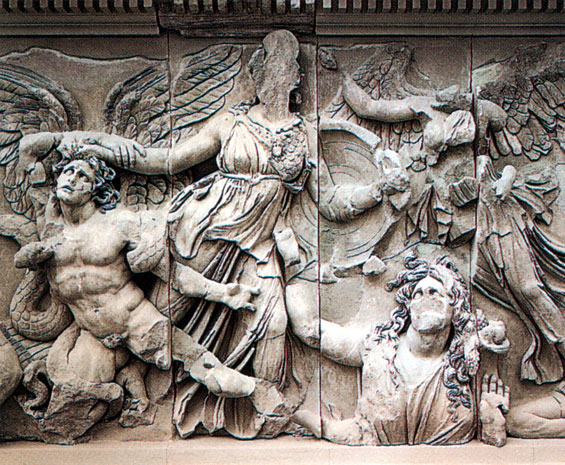“Then the cities of Judah and the inhabitants of Jerusalem will go and cry to the gods to whom they make offerings, but they cannot save them in the time of their trouble. For your gods have become as many as your cities, O Judah, and as many as the streets of Jerusalem are the altars you have set up to shame, altars to make offerings to Baal.”
Much that has survived from the ancient world is a testament to man’s ability to build in the name of worship. Go to almost any museum of history or antiquity and you will see a whole parade of gods. Gods etched on walls and carved in stone, gods delicately painted onto clay, gods written into and illuminated in manuscripts. And when we see these gods, seemingly fragile and crude, tamed behind tinted glass or standing limb-less on sanitized blocks, surrounded by explanatory text, it is easy to wonder how they stirred anyone to worship and devotion. Though they may be beautiful and a testament to man’s creative capacity, the lesson of history is that idols always seem silly in retrospect.
Reading the prophets is a lot like that museum tour. Much of their work was to pull Israel and Judah out of the now and help them view their idolatry in retrospect. Jeremiah, for example, cries out, “Every goldsmith is put to shame by his idols, for his images are false and there is no breath in them (Jer. 10:14). This is also the work of the prophets for us–to pull us out of our now so that we might see our idols as trinkets that will make museum goers of the future laugh at our reckless and misguided devotion.
But we don’t believe this. Tracing the whole parade of gods through human history it is easy to believe that we have advanced, that trinkets and gods no longer captivate us, that in the modern world we have moved past superstition. But this is not so. Though we might not call it worship, there is plenty that captivates our devotion and demands our attention. This only begs the question–who are the gods in our culture? On what altars do we spill the libations of our time and money?
We need not look much further than our homes for the answer. In ancient homes the altar was the center of gravity. The whole of domestic life orbited around and bent toward their household gods and altars. Think of the distress of Laban when he finds that his bevy of household gods have gone missing with Jacob’s departure (Gen. 31:25-30). So where is the center of gravity in our homes? For many it is the glow of various screens. We bend our lives toward our televisions, our monitors, our phones, our tablets. Like icons in the Orthodox tradition, we often think of those flickering screens as windows to a vaster and greater world. We act as if they are portals to the transcendent. Though we won’t leave stone altars behind, we will leave digital altars, trails of code that lead the archaeologists and historians of the future directly to the heart of our devotion. The internet as we now know it will become a digital dig site. What will they make of our fascination with social networks? What will they make with the deluge of porn? How will they explain the inordinate amount of attention payed towards individuals were simply famous for being famous?
The irony of blogging these reflections doesn’t escape me. I am as prone as anyone to the pull of the flicker. In fact as I write this entry, I’m using an app called Freedom that blocks my internet access for a block of time so that I can concentrate. That I need such an app is telling. And so is the fact that it is called Freedom. In the face of the possibility of unbroken access it is unplugging for a stretch of time that now feels like freedom. We live in the information age. It is a fact, and it has the potential for both curse and blessing. How can live so that these tools stay as tools and do not become idols? I am still working out the answer to that question myself.


